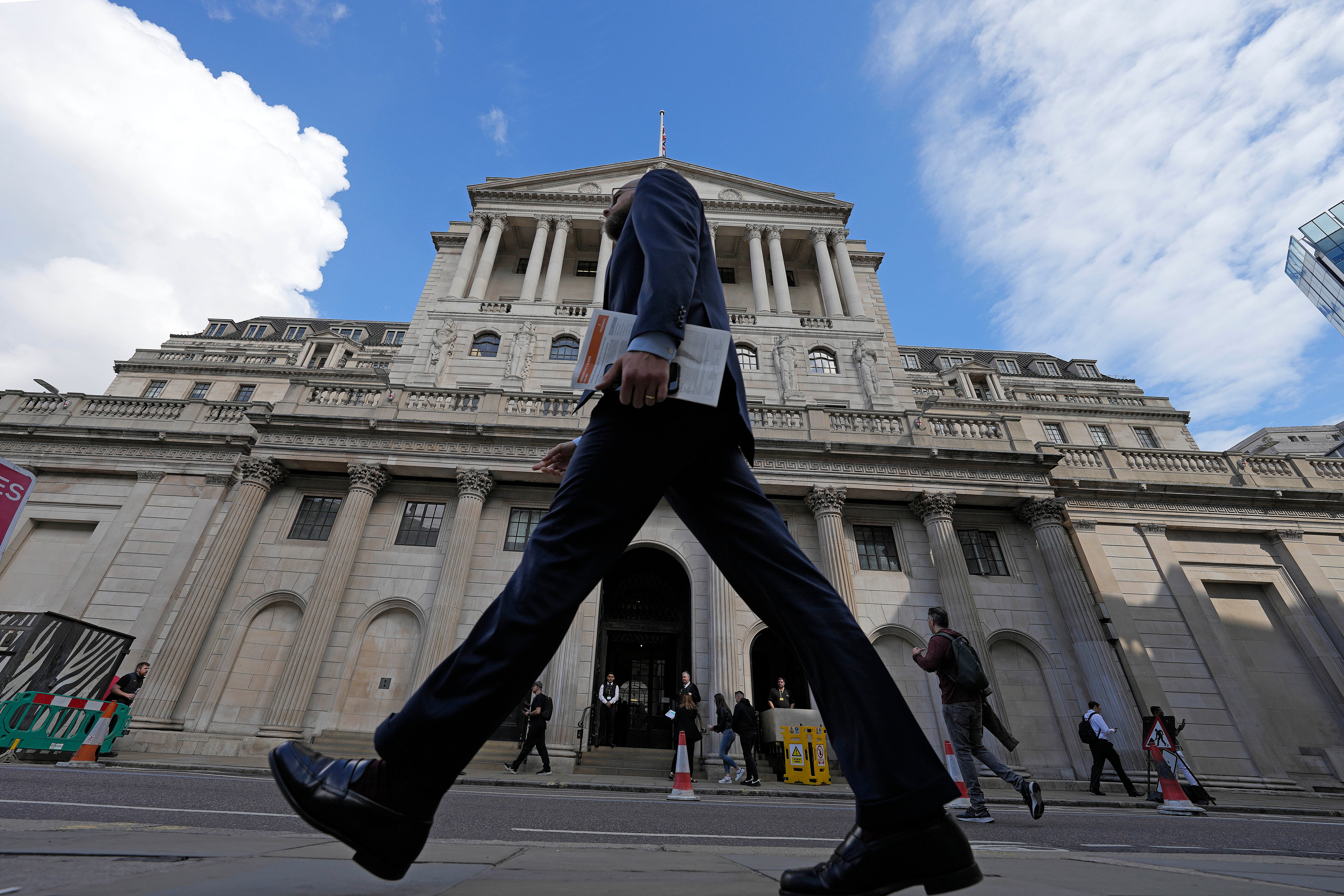Bank of England is set to hike rates to battle inflation. That means pain for borrowers
The Bank of England is poised to raise borrowing costs again to combat stubbornly high inflation, which has failed to come down from its peak as quickly as expected

The Bank of England is poised to raise borrowing costs again on Thursday to combat stubbornly high inflation, which has failed to come down from its peak as quickly as expected.
Though the consensus among analysts is that the central bank will raise its main interest rate by a quarter-percentage point — hitting a new 15-year high of 4.75% — there are concerns, certainly among borrowers, that it may opt for a bigger half-point increase.
That larger hike would be particularly painful for people with loans, especially the 1.4 million or so households in the U.K. that will have to refinance their mortgages over the rest of the year.
Central banks around the world, from the U.S. Federal Reserve to European Central Bank, have been rapidly raising interest rates to bring down inflation first stoked by supply chain backups tied to the rebound from the pandemic and then Russia’s invasion of Ukraine.
Turkey's central bank also was expected to raise rates Thursday in what could signal a turnaround from unusual economic policies.
For the Bank of England, there had been hopes that it could take a pause in its rate-hiking cycle if inflation showed clear signs of slowing.
But no longer.
Figures Wednesday showed that inflation in the U.K. unexpectedly held steady at 8.7% in the year to May after expectations for a modest decline to 8.4%. While that is down from 11.1% last October, its highest level since the early 1980s, the bank wants it at 2%.
Rate hikes take time to work, but recent economic figures suggest that high inflation has not fallen as hoped and become embedded in the economy through higher wages and the prices people pay for services, such as eating out or going to the movies.
“Sticky inflation is extending the cost-of-living crisis for everyone in Britain and hardening the mortgage crunch for the 7 million households who have a mortgage," said James Smith, research director at the Resolution Foundation economic think tank.
Higher interest rates help lower inflation by making it more expensive for individuals and businesses to borrow, meaning they potentially spend less, reducing demand and pressure on prices.
That clearly comes at a cost, and there are concerns over the outlook for the British economy, which has so far avoided falling into recession even as Europe's economy has contracted slightly in the six months ending in March.
“Workers are suffering the steepest real-term cuts in living memory, and enormous economic damage is being done because people can’t afford to pay the bills," said Gary Smith, general secretary of the GMB trade union.
Subscribe to Independent Premium to bookmark this article
Want to bookmark your favourite articles and stories to read or reference later? Start your Independent Premium subscription today.
